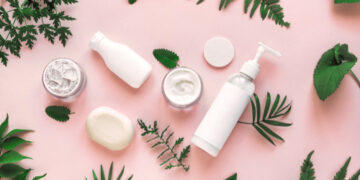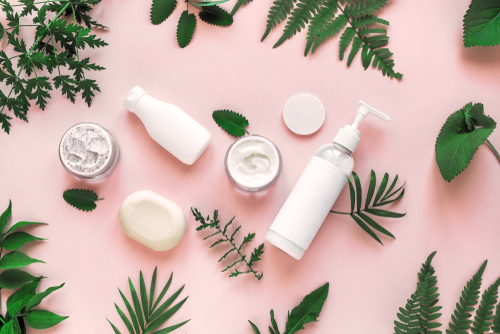A Quiet Return to the Roots of Beauty
There was a time, not too long ago, when I lived surrounded by powders and palettes. As a makeup artist, my world was color, shimmer, and transformation. But behind the scenes, my own skin was whispering for relief—dry patches that flared, redness that lingered, reactions to products I once trusted. Over time, I started paying closer attention to labels, to ingredients I couldn’t pronounce, to fragrances that felt more like perfume than comfort.
That’s when I found myself reaching for something simpler. The golden warmth of cold-pressed oils. The subtle floral scent of lavender water. The rich, earthy texture of clay masks stirred by hand. What began as an exploration turned into a calling—to understand not just what was in my skincare, but how it was grown, harvested, and honored.
For anyone standing in the skincare aisle today, scanning words like “natural,” “organic,” or “clean,” the choices can feel more overwhelming than empowering. But once you begin to decode the meaning behind labels like USDA Organic or COSMOS-certified, the fog begins to lift. These labels are more than pretty stamps—they’re quiet promises of purity, care, and intention.
The Heart of Certification: Why Labels Matter
When I first began crafting my own skincare, I learned very quickly how much language is used loosely in the beauty world. The term “organic,” for instance, isn’t legally regulated in all countries when it comes to skincare. That means a product can market itself as organic, even if only a tiny fraction of its ingredients are. This is why certifications matter—they protect the integrity of the ingredients and your trust as a consumer.
Let’s start with USDA Organic, which is perhaps the most recognizable in the U.S. This certification means that at least 95% of the ingredients in the product (excluding water and salt) were grown and processed under strict guidelines: no synthetic pesticides, no petroleum-based fertilizers, no genetically modified organisms. What you’re left with is something clean, close to the earth, and kind to the skin.
COSMOS—a European standard—offers a similar promise but with a slightly wider lens. It looks not only at how the plants were grown but how the entire product was made. Was the packaging sustainable? Were environmentally friendly processes used? Does the final product honor transparency and biodegradability? Brands that meet COSMOS standards often wear their certification with pride, because it reflects a commitment that extends from soil to shelf.
Nature’s Touch: How Organic Skincare Feels on the Skin
There’s a sensory difference when you use something truly organic. It’s in the way the oil glides—not greasy but silken. It’s in the scent, which doesn’t shout but gently surrounds you—like a field of chamomile at dusk or a hint of citrus rising from a freshly peeled mandarin.
My skin, once reactive and uncertain, began to settle under this new rhythm. Plant oils like rosehip and argan—rich in essential fatty acids—helped support my skin’s barrier, reducing the dry tightness I used to feel by midday. Calendula-infused jojoba oil, bright and golden, offered anti-inflammatory comfort during breakouts. And botanical hydrosols, like organic rose water, became my go-to midday refreshment—calming, hydrating, and subtly fragrant.
When ingredients are truly organic, they tend to retain more of their active compounds—antioxidants, vitamins, natural enzymes—because they haven’t been overly processed or exposed to chemical treatments. This makes them not only more effective but also gentler, especially for sensitive or inflamed skin types.
Ad Banner #1
Placeholder for promotional content or advertisement.
Trusting the Process: Reading Beyond the Front Label
Marketing can be clever. A product might boast “made with organic ingredients” on the front label, yet contain just a sprinkle of organic aloe in a sea of synthetics. To find the truth, always turn the bottle around. Look for an official certification seal, and then scan the full ingredient list. Are the main ingredients certified? Are there any artificial fragrances, colorants, or preservatives lurking?
True organic products often have a shorter shelf life—but to me, that’s a reassuring sign. Like food, the freshest skincare spoils quickest. That’s why I craft mine in small batches, using ingredients that I know and trust—organic shea butter, steam-distilled essential oils, raw local honey. They may not last forever on the shelf, but they do wonders on the skin.
A Note on Sensitivities and Self-Knowledge
Even natural ingredients can provoke a reaction, especially if your skin is already in a state of imbalance. I always recommend a simple patch test before trying something new. Apply a bit of product to the inner arm or just behind the ear, and wait 24 hours to see how your skin responds. Trust your skin’s voice—it will tell you what it likes and what it doesn’t.
For those with allergies to certain plants (like ragweed or nuts), be especially mindful. Many botanical oils and extracts are derived from seeds and flowers that may trigger responses. Gentle doesn’t always mean harmless—but it does mean you have choices. Clean beauty is about listening, not just applying.
Ad Banner #2
Placeholder for second promotional content or advertisement.
Reclaiming Ritual: The Joy of Organic Skincare
Choosing certified organic skincare isn’t about perfection. It’s about returning to ritual. It’s the cool splash of aloe vera gel on sun-kissed skin. The earthy scent of kaolin clay as it dries, pulling impurities with grace. The sweet glide of vanilla-infused oil massaged into tired temples at the end of the day.
These are more than steps in a routine—they’re quiet acts of care. When we use products that are grown and crafted with intention, we connect with a lineage of healing, of respecting the land, of honoring ourselves. It’s beauty that begins with soil and ends with softness.
So the next time you reach for a product labeled “organic,” pause. Feel the weight of the jar in your hand. Inhale its scent. Turn it around and read with care. And know that in making that choice, you’re not just caring for your skin—you’re tending to your own well-being.
























